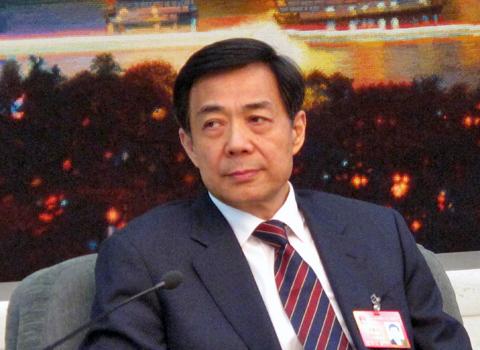Same Old "New" CCP
Corruption, bribery, and the importance of guanxi (connections) are ills which continue to plague Chinese society. Meet any Chinese person and exchange a few jokes, and it becomes apparent that they know who benefits from these three ills: Communist Party cadres and their children. In the same way that the CCP continues to sing the praises of socialism while building one of the most aggressively capitalist societies on Earth, so too do party members chant anti-corruption slogans while pocketing all the spare change they can find.
The trial of Bo Xilai, former party head of the Chongqing municipality (population 30 million), will likely occur sometime within the next two months. He stands accused of bribery, corruption, ilicit sexual behavior, and aiding his wife Gu Kailai in the murder of British businessman Neil Heywood. This trial, however, has nothing to do with corruption, bribery, or murder committed by a party member. It has everything to do with a party searching for a scapegoat before a new generation of leaders takes center stage.
Mr. Bo was once a party darling (at least in public), and his neo-Maoist populism gained him widespread popularity in Chongqing. Unfortunately for him, popularity among the common people means virtually nothing in the Chinese political scene, and news of the scandal surrounding his family was widely propagated. Bo has now become a symbol of the party’s excesses and abuses—exactly the image of the part from which the new generation of leadership headed by Xi Jinping wants to distance itself.
Although corruption is a problem, and the party desires to be seen doing something to tackle it, the much deeper problem represented by Bo Xilai is the fact that, in today’s China, a small group of Communist Party officials live completely above the law. The rest of the populace can be most adequately described as victims of the law—never quite knowing what the real penalty for one’s crime will be, and yet subject to its harshest penalties at politically opportune moments.
Some analysts speculate that there may be cause for optimism after the leadership transition, which will begin on November 8. Maybe journalists will finally be given a wider leash; maybe personal property rights will be extended; maybe the party will stop manipulating Chinese fury over disputed territories to distract from the daunting problems on the home front. This optimism was also voiced when Hu Jintao took over the reins from Jiang Zemin a decade ago. Then, like now, I believe that there is no cause for meaningful optimism. Even in the face of the daunting tasks which the Chinese party-state continues to face, it is laughable Xi Jinping and his cronies will bring any kind of meaningful change to the Chinese system. The rule of law may have to wait another decade to take route in China. This November in Beijing, it will simply be another case of “Meet the new boss—same as the old boss.”

